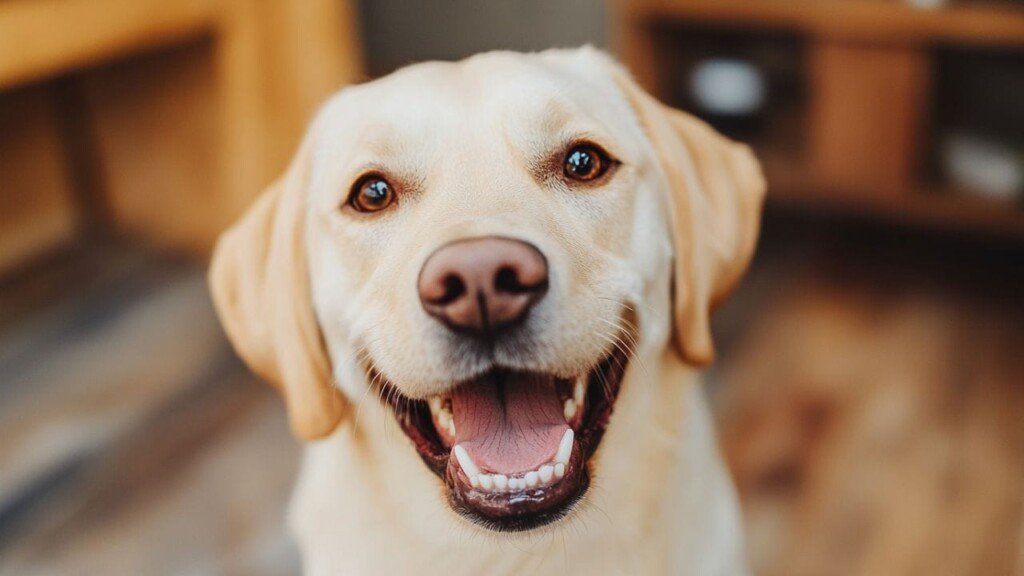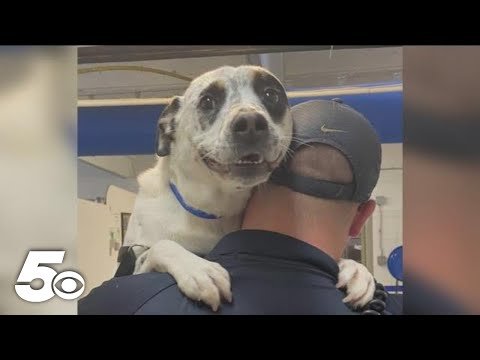Maintaining good oral health is crucial for our canine companions, just as it is for humans.
While brushing your dog’s teeth is an essential part of dental care, it’s not the only way to keep those pearly whites clean and healthy.
Let’s explore various methods and strategies to ensure your furry friend’s mouth stays in top condition, going beyond the traditional toothbrush approach.
The Importance of Canine Dental Health
Before diving into alternative dental care methods, it’s crucial to understand why dog dental health matters.
Poor oral hygiene can lead to serious health issues, including gum disease, tooth loss, and even organ damage.
Bad breath, while unpleasant, is often a sign of underlying dental problems that shouldn’t be ignored.
Maintaining your dog’s dental health can prevent pain, discomfort, and costly veterinary procedures down the line.
Want to keep up to date with new animal stories?
Dental Chews and Treats
One popular and easy way to supplement your dog’s dental care routine is through specially designed dental chews and treats.
These products are formulated to help reduce plaque and tartar buildup as your dog chews.
Look for treats that have been approved by the Veterinary Oral Health Council (VOHC) for maximum effectiveness.
While not a substitute for brushing, these treats can be a helpful addition to your dog’s dental care regimen.
Remember to choose appropriate sizes and textures for your dog to prevent choking hazards.
Water Additives
Dental water additives are a simple, hands-off approach to improving your dog’s oral health.
These products are added to your dog’s drinking water and work to reduce bacteria in the mouth.
Many dogs accept water additives without issue, making them an excellent option for pets who resist other forms of dental care.
Be sure to follow the product instructions carefully and monitor your dog for any adverse reactions.
Dental Wipes and Pads
For dogs who won’t tolerate brushing, dental wipes or pads can be a good alternative.
These products allow you to physically remove plaque and bacteria from your dog’s teeth and gums.
While not as effective as brushing, they’re better than no dental care at all.
Gently wipe your dog’s teeth and gums with the pad, focusing on the outer surfaces where plaque tends to accumulate.
Professional Dental Cleanings
Regular professional dental cleanings performed by a veterinarian are an essential part of your dog’s dental care.
These cleanings allow for a thorough examination of your dog’s mouth and the removal of stubborn tartar.
Your vet can also identify and address any dental issues before they become serious problems.
The frequency of professional cleanings will depend on your dog’s individual needs and oral health status.
Diet and Nutrition
Your dog’s diet plays a significant role in their dental health.
Some specially formulated dog foods are designed to help reduce plaque and tartar buildup.
Crunchy kibble can have a mild abrasive effect on teeth, helping to keep them clean.
However, wet food alone doesn’t provide the same dental benefits and may contribute to plaque buildup.
Consult with your veterinarian about the best diet for your dog’s overall and dental health.

Chew Toys for Dental Health
Certain chew toys can help maintain your dog’s dental health while providing entertainment.
Look for toys specifically designed to promote dental hygiene, such as those with ridges or nubs that clean teeth as your dog chews.
Rubber or nylon toys can be effective, but avoid toys that are too hard, as they may damage your dog’s teeth.
Always supervise your dog when introducing new chew toys to ensure safe use.
Natural Dental Aids
Some natural products may offer dental health benefits for dogs.
Raw bones (under supervision) can help scrape plaque off teeth, but be cautious as they can also pose choking or intestinal blockage risks.
Coconut oil, when applied to teeth or added to food, may help reduce bacteria in the mouth.
Always consult with your veterinarian before introducing any new natural remedies to your dog’s routine.

Regular Home Checks
Performing regular at-home dental checks is crucial for maintaining your dog’s oral health.
Look for signs of dental issues such as bad breath, red or swollen gums, or discolored teeth.
Check for any loose teeth or growths in the mouth that may require veterinary attention.
Early detection of dental problems can lead to more effective and less invasive treatments.
Combining Methods for Optimal Care
The most effective dental care routine for dogs often involves a combination of these methods.
Brushing remains the gold standard, but supplementing with other techniques can enhance overall oral health.
Tailor your approach to your dog’s preferences and needs, always prioritizing their comfort and safety.
Consistency is key in maintaining good dental hygiene for your furry friend.
Conclusion: A Bright Smile for a Happy Dog
Dental care for dogs goes beyond brushing, offering a variety of options to keep your pet’s mouth healthy.
By incorporating different methods such as dental treats, water additives, and professional cleanings, you can significantly improve your dog’s oral health.
Remember that each dog is unique, so what works for one may not work for another.
Experiment with different techniques and consult with your veterinarian to create the best dental care plan for your furry companion.
A healthy mouth contributes to your dog’s overall well-being, potentially adding years to their life and enhancing their quality of life.
Share this guide with fellow dog owners to spread awareness about the importance of comprehensive dental care for our beloved canine friends!
SHARE now with your friends!


